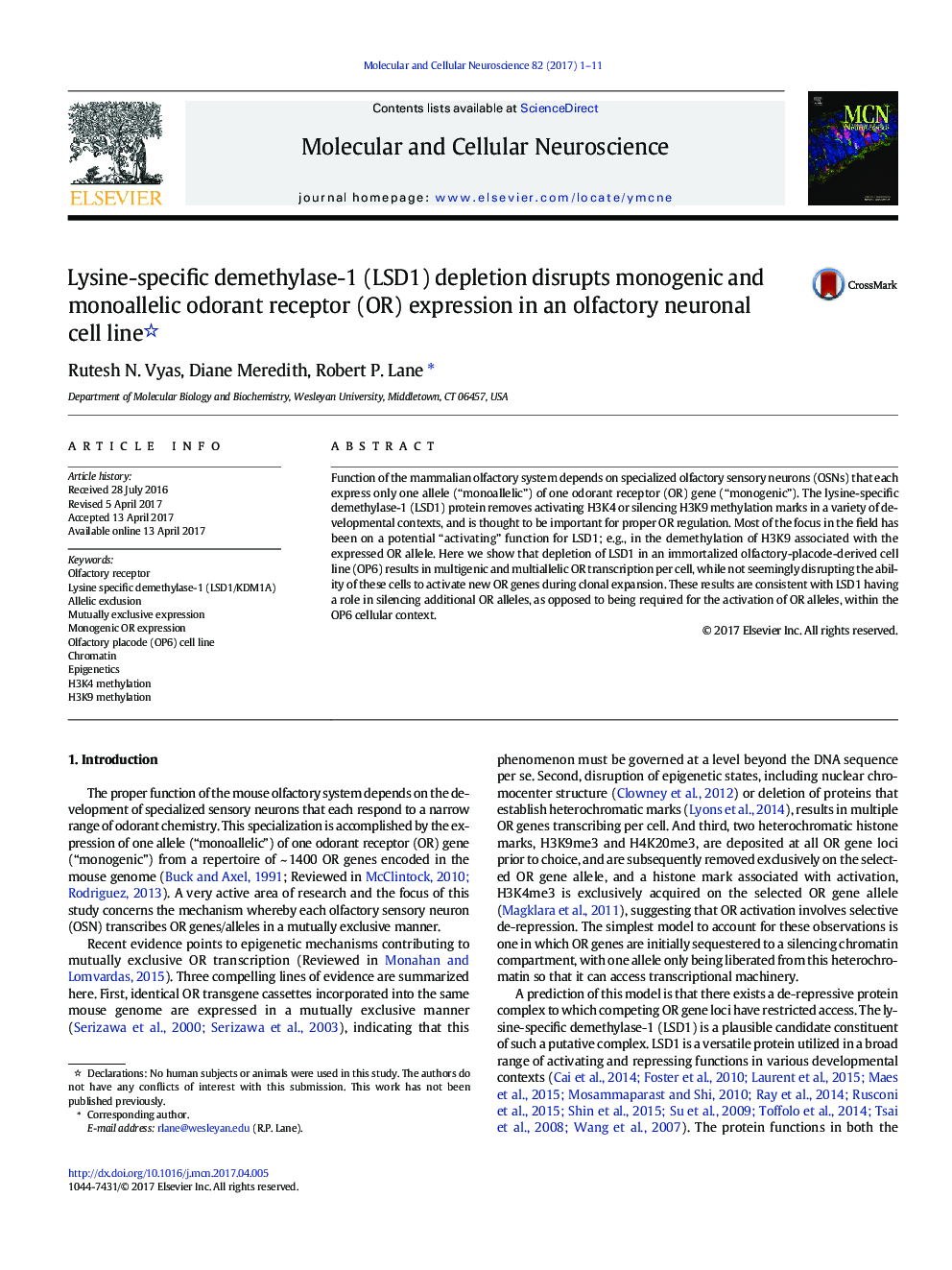| Article ID | Journal | Published Year | Pages | File Type |
|---|---|---|---|---|
| 5534340 | Molecular and Cellular Neuroscience | 2017 | 11 Pages |
•LSD1 has been stably knocked down in the OP6 cell line•LSD1 depletion does not interfere with OR gene switching, suggesting that LSD1 is not required for OR activation events•LSD1 depletion results in multiple ORs expressed per cell, suggesting that LSD1 is required for OR suppression events•Prolonged absence of LSD1 in OP6 cultures results in systematic accumulation of H3K4me2 levels at OR loci•LSD1 depletion impacts CoREST and LBR protein levels, both involved in the process of OR regulation
Function of the mammalian olfactory system depends on specialized olfactory sensory neurons (OSNs) that each express only one allele (“monoallelic”) of one odorant receptor (OR) gene (“monogenic”). The lysine-specific demethylase-1 (LSD1) protein removes activating H3K4 or silencing H3K9 methylation marks in a variety of developmental contexts, and is thought to be important for proper OR regulation. Most of the focus in the field has been on a potential “activating” function for LSD1; e.g., in the demethylation of H3K9 associated with the expressed OR allele. Here we show that depletion of LSD1 in an immortalized olfactory-placode-derived cell line (OP6) results in multigenic and multiallelic OR transcription per cell, while not seemingly disrupting the ability of these cells to activate new OR genes during clonal expansion. These results are consistent with LSD1 having a role in silencing additional OR alleles, as opposed to being required for the activation of OR alleles, within the OP6 cellular context.
